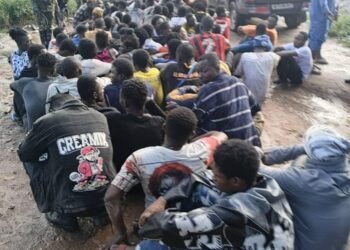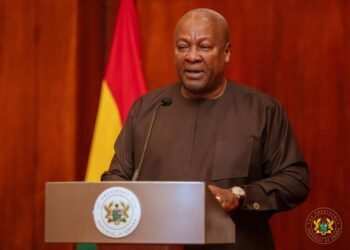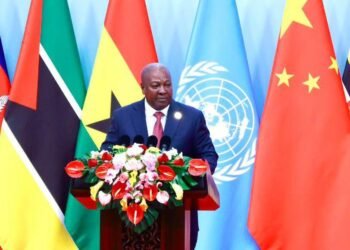As Ghana intensifies its efforts to address environmental degradation and climate change, Professor Nana Ama Browne Klutse, CEO of the Environmental Protection Authority (EPA), is placing lifelong learning and environmental education at the center of the conversation.
Speaking about an upcoming joint conference between the EPA and the Pan African Center for Climate Policy, Professor Klutse called for a nationwide shift in attitude and action toward protecting the environment.
“We need attitudinal change in the country. You see that some people deliberately want to destroy the environment or pollute the environment. Some will also do it without knowing the implication”
Professor Nana Ama Browne Klutse, CEO of EPA
According to Professor Klutse, the conference will focus on embedding environmental awareness into lifelong learning processes, targeting both intentional and unintentional actions that harm the ecosystem.
Professor Klutse expressed concern about the extensive destruction of Ghana’s wetlands and mangroves, particularly in urban and coastal areas. She warned that this destruction is compounding the effects of flooding, “sea level rise,” and biodiversity loss.
She explained that wetlands act as natural drainage systems in major cities and are home to diverse plant and animal species. When encroached upon or destroyed, these natural systems fail, leading to more severe flooding and habitat loss.

“Destroying those places means that we won’t have safe places for water when it rains to run to and then it’ll cause flooding in our areas or communities”
Professor Nana Ama Browne Klutse, CEO of EPA
Mangroves, she explained, play an equally vital role in protecting coastal communities. They reduce coastal erosion, and their destruction for firewood and charcoal removes this natural barrier.
“Cutting these mangroves means that we are allowing coastal erosion, which is something that is also eating us up in our coastal communities,” Professor Klutse noted.
She further emphasized that while climate change and sea level rise are external threats, the actions of Ghanaians are also contributing to these challenges. The call to action, she believes, must be swift and unified.
An Escalating War
Turning her focus to illegal mining, Professor Klutse described the galamsey menace as a “war” that Ghana is not approaching with sufficient seriousness.
“I have seen several utterances declaring Galamsey as a war. I don’t know how or why we dance around wars in Ghana. If it’s a war, we must approach it as a war. I’m not sure the illegal miners are more armed than our military men in the country.
“Then it means as a country, we are naked, and we can’t fight if we have another country coming to attack us”
Professor Nana Ama Browne Klutse, CEO of EPA
She recounted participating in a panel discussion on World Press Freedom Day, where journalists and international representatives examined how galamsey is being communicated to the public.

She praised efforts to raise awareness but cautioned that words alone are not enough. What began as an environmental crisis has evolved into a public health emergency. Contaminated water bodies, polluted with mercury and cyanide, now pose serious risks to communities.
“Currently we are having children born with defects and we don’t want to encourage this. Even those who feel they are not in the Galamsey areas are not safe either”
Professor Nana Ama Browne Klutse, CEO of EPA
Sustainable Mining
Professor Klutse outlined the EPA’s current initiatives to mitigate illegal mining through sustainable practices and community engagement.
Chiefs are being empowered to protect their lands, and new mercury-free gold processing hubs are being established to offer safer alternatives for small-scale miners.
“We can’t destroy our water bodies. We can’t continue to destroy our land. We must mine sustainably”
Professor Nana Ama Browne Klutse, CEO of EPA
She expressed hope that these hubs will foster cooperation between miners and the EPA, leading to the eventual phasing out of mercury and cyanide in gold processing. These actions, she asserted, are not just necessary – they are urgent and require unified national effort.
As Ghana’s environmental frontlines stretch from mangrove forests to mining pits, Professor Klutse’s message is clear: the fight for sustainability is one that must be owned and advanced by all Ghanaians.
READ MORE: Ghana not Attractive for Oil Investment – Dr. Manteaw





















